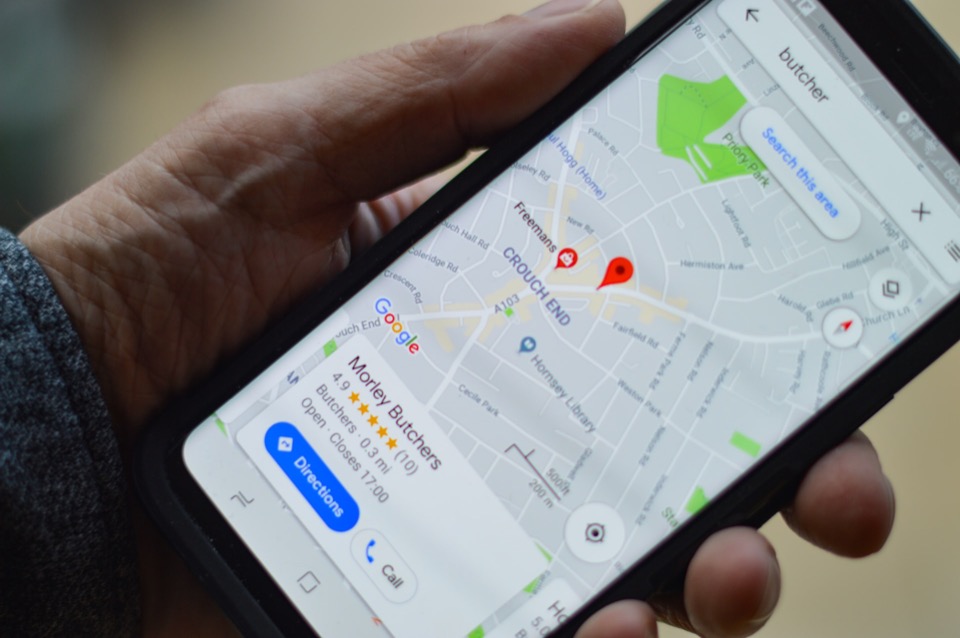Your local search engine optimization (SEO) strategy can be a powerful tool to boost visibility, but there are unique factors to be considered when targeting local SEO. You can think of local SEO as a subset of the same principles that govern search engine rankings. Local SEO deals with the visibility of physical stores by improving their search rankings in a certain area.
What Can Local SEO Do For You?
The top 3 ranking sites in a search result for a given topic attract over 40% of traffic from potentially interested customers. Clearly, the way you manage your business’s presence online has a massive impact on your future growth and revenue. Some key benefits of local SEO include:
- Relevant traffic: We’ve all been disappointed when we’ve stumbled onto an interesting product and are ready to order only to find out that they don’t even deliver in your area. A key factor in plummeting conversion rates is the fact that ads and search results can bring in customers that your business can’t service at the time.
Local SEO fixes this problem by making your business more visible where you do operate. Businesses that implement local SEO tend to see higher conversion rates simply because they’re bringing in more customers that are relevant to the business.
- Cost-effective: A natural consequence of gaining more relevant leads is that businesses that invest in local SEO strategies don’t necessarily have to splurge on massive marketing campaigns to grow. A focus on local SEO can mean a more precise marketing strategy that targets customers near your store, giving your business critical tips on how to sell better.
- Community-building: Maintaining a strong online presence, even if you’re a brick-and-mortar business, is essential for SEO. Strong SEO rankings make your business visible to local customers who are searching for your products or services online. To rank highly in Google SERPs, you need to have a quality website with authoritative content. If they’re impressed with your site, customers can continue to engage with your business there and through online spaces like social media, forums, and chat rooms. They can also leave reviews, which will further boost your business’s credibility.
- Put your business on the map: Creating an updated and relevant online presence for your business opens you up to multiple new segments of potential customers. For example, voice assistants like Siri are commonly used by people while driving to find nearby businesses in a hurry. If your business has built up a reputation online with Google rankings, you’re more likely to be recommended the next time a customer is looking for a product you offer.
Your Google rankings are based on multiple factors, and capitalizing on just a few of them can bring huge dividends to both small and big business owners. Here are some local SEO tips to boost those rankings.
Understand The ‘Local’ in Local SEO
To really be effective, your local SEO strategy has to be fine-tuned according to your actual business presence. This means that the more precise and localized your target area, the higher your chances of success. An audit can be a good way to see what businesses in your area are already doing well and what works for them and what doesn’t.
Every locale has its own peculiarities, so a ‘one size fits’ approach is never the answer. Here are some easy ways to start off on the right foot:
- Optimize locally: A good tip for local SEO is researching popular search terms that are specific to your area and optimizing your website for those terms. This is relatively easy and cheap to do, and if you’ve done it right, you might even see improvements in your overall search engine rankings, too!
- Create locally: To build a relevant local presence, it’s worthwhile for businesses to invest in creating content that’s recognizable and relatable for their target area. An example of this would be social media posts themed around a popular landmark or an event that people living in that area would recognize.
Not only does creating content optimized for location help you build links and citations, it’s also an incredibly effective way of integrating your business into the community in an organic and lasting manner. - Capitalize on trends: While ‘going viral’ isn’t exactly a foolproof strategy for marketing, it can certainly help provide valuable ROI for small businesses. Capitalizing on trends and news topics in your local community with targeted content like social media posts can bring your business to new communities, multiplying your potential customers.
It’s worth pointing out that there is a flipside to this. Capitalizing on trends also includes being sensitive to and aware of topics that local customers may not necessarily want to see in the form of advertising. Unappealing content encourages viewers to block your business and harms your Google ranking.
Around 30% of Google searches are related to location; marketers who understand the specific needs and wants of local customers can capitalize on that statistic for long-term gains.
Prioritize Google My Business (GMB)
GMB is a crucial part of any effective local SEO strategy. This begins with ensuring you have your business registered on Google My Business. Next, you’ll want to verify and update your business’ physical address so interested customers can find you. Fleshing out your GMB profile raises the chances of being ranked well in search results.
You’ll want to look at your profile as an investment if you’re really looking to make the most out of GMB. A local SEO-savvy marketer will go the extra mile for potential customers by adding tips to find your store using local landmarks and providing your accurate GPS location for easy navigation with Google Maps.

Other good practices to follow to optimize for GMB include:
- Regular updates: Profiles that aren’t updated regularly to account for changes in the business can end up harming you more than helping. For example, if you’ve shifted your operations to online-only on certain days, and your business profile doesn’t reflect that, you’ll end up losing customers who won’t have access to that information.
- Use pictures: Pictures add to your store’s online presence and your trustworthiness. Adding pictures of your storefront is a good tip for local SEO as it can help verify your location and give potential customers an idea of what to expect when they visit you.
Ideally, you should aim to have a mix of semi-professional and amateur photos taken by customers to boost the community aspect of your business. - Mention products: A powerful feature that GMB offers businesses that often goes overlooked is the ability to add the products and services your business provides directly in your GMB profile. Not only does this help save on advertising, but it also assists customers in quickly making purchasing decisions.
- NAP consistency: NAP (Name, Address, and Phone number) consistency essentially means that these details about your business should be the same wherever they appear. This subtle aspect of local SEO strategy goes a long way in presenting a reliable image to search engines.
While it’s great to fill out a profile and incorporate keywords where you can, remember that the rule of quality over quantity applies almost everywhere on the internet. Make sure your information is relevant over anything else.
Citations Are Your Friends
Backlinks are one of the foundations of an effective SEO strategy; think of local citations as backlinks for your business. They can be as small as a passing mention in a blog or a high-visibility review in a local newspaper. A reliable local SEO tip for physical stores looking to build citations and improve rankings is getting your business listed in national and state directories.
Local blogs and online newspapers are fantastic places to build local citations. If you’ve built a reputation for your business in your locale, chances are you’ll be contacted by these outlets for interview requests. For newer businesses that want to get a foot in the door, it’s perfectly acceptable to reach out and propose collaborations.
Google searches containing the term ‘near me’ have grown by 200% since 2019. The power of local SEO also results in competition for businesses fighting for search engine relevance. Citations are Google’s way of determining the authenticity and reliability of your business, from verifying your physical location to the quality of services you might provide.
Some common tips for what not to do for effective local SEO include:
- Plagiarism: To quickly build citations, some businesses resort to pushing out articles that might not be wholly original. The pitfall here is that duplicate articles can tank a business’ search engine ranking and damage the authenticity of your business in general. Well-researched and authentic articles can be an asset to a firm’s local SEO strategy, and taking the time to work on them is always the better call.
- Ignoring SEO: The articles and blogs you publish (or get published in the form of guest posts) should serve the dual purpose of building citations as well as performing effective SEO. Writing with popular local keywords in mind will boost your visibility significantly both locally and on a wider scale.
An example of organically integrating local keywords is linking to popular products that might be in demand specifically in your area. The trick here is to not spam readers with irrelevant keywords because this tends to get picked up by crawlers and will hurt your website’s local and general ranking.
Building an effective network through guest posts and business collaborations creates a strong online presence for your business.
Reviews Can Be Your Best Asset
Reviews are often the first (and last!) impression customers have of a new business. Customers can be dissuaded from buying even the most appealing products by poor ratings, which is why cultivating meaningful relationships with customers is crucial for lasting business success. Here are some local SEO tips for managing reviews:
- Maintain quality: The biggest incentive for a customer to drop a review is to create something worth gushing over. Businesses that have consistent production processes and quality control are more likely to have loyal customers in the long run.
- Be organic: A worrying local SEO strategy trending in business circles is the use of fake reviews. Newer businesses not willing to put in the work can resort to the use of bots and review farms to boost their ratings in a bid to attract more customers. While this offers preliminary results for some businesses in the short term, Google’s algorithm is adept at picking out fake reviews by analyzing patterns.
A helpful local SEO tip for business owners struggling with reviews is to always maintain an organic touch. Engineered review sections showcasing only the highest reviews can peeve customers and even discourage them from buying your products, as well as hurting your brand image. The worst case scenario here, of course, is the fact that businesses found guilty of botting can even be blacklisted by Google. - Social media: Incorporating social media into your review strategy is an invaluable tip for effective local SEO to improve visibility. An effective example of this is small business owners who publicize their social media handles on their packaging. This practice encourages customers to join the community, builds customer loyalty, and vastly improves transparency.

Stand Out From The Competition
A hardworking, unique business deserves to stand out from the crowd, and differentiating your venture doesn’t have to be a difficult process. Follow the BESTSEO blog to make the most of your incredible products or services and help elevate your Google rankings with hard-hitting and organic strategies.

